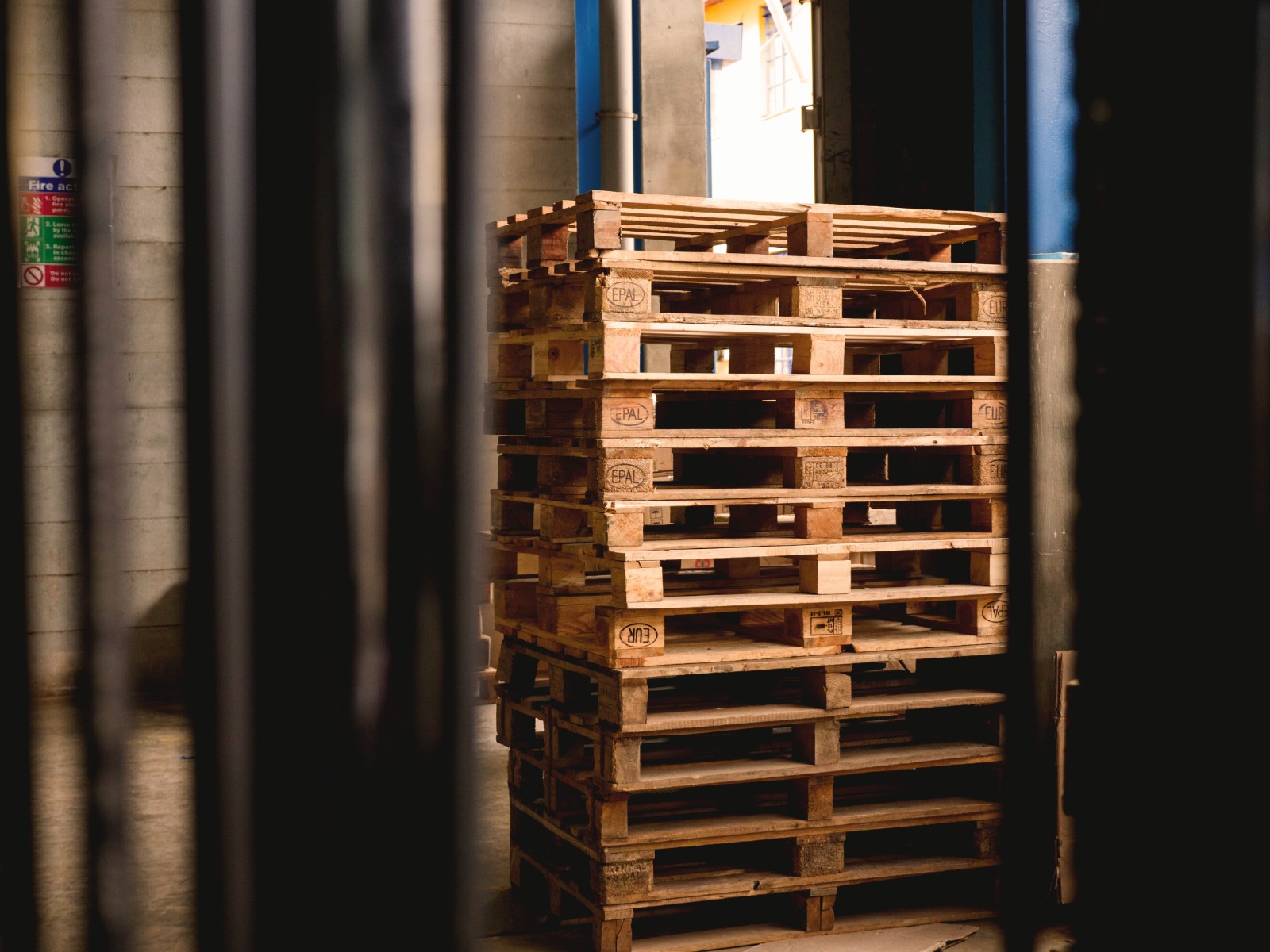Crises, a shortage of skilled labour, increasing complexity and new competitive structures are major challenges that regularly confront almost every industry with the question of how to deal with change. One way in which companies can deal with change instead of being helplessly at its mercy is through resilience. Being resilient means adapting and creating new framework conditions using your own resources. What sounds like a time-consuming process was achieved by Paletten Service Hamburg in just 3.5 days during the Resilience Sprint last December. Together with creative minds Sebastian Mends-Cole and Toshiki Yabushita, the medium-sized company from Harburg launched a solution to strengthen resilience, the success of which can be attributed to two factors: cross innovation and the presence of decision-makers in the process. But more on that later.
The Resilience Sprint is an innovation format that relies on the power of co-creation in a shortened ideation process. Daniel Stadach, Chief Operating Officer at PALETTEN-SERVICE Hamburg, accompanied the sprint together with Maxime Mönke, CSR and Marketing Manager, from the company side. Not knowing how the collaboration between companies and creatives would work and what could be achieved in short sprints, Daniel Stadach was still a little sceptical at the beginning: "I was a little reserved and unsure about what to expect from the Resilience Sprint, but in retrospect I am absolutely delighted! The fact that two creative people from outside the industry worked with us with the methodological support of an expert from the Cross Innovation Hub gave us the space to work out and address one (of many) challenges."
In order to take part in the Resilience Sprint, PALETTEN-SERVICE Hamburg had the task of defining a specific problem in advance. Daniel Stadach and Maxime Mönke then worked out the following question for themselves: Was it a coincidence that we mastered the crisis without government support? How can we consolidate this position in the long term and what are our blind spots?
In the very first sprint phase, this question was revised and a new focus was set. The biggest challenge for the pallet producer from Harburg is the competition with other producers. In day-to-day business, one thing counts above all for customers from the purchasing department: the price. And this is constantly being pushed down. It is obvious that this is not economical in the long term. In order to maintain a strong position on the market in the long term, an alternative approach was needed. Step by step, the team developed a solution that would give the company a clear advantage in competition with other producers. The idea was to move away from the existing decision criterion of "price" and towards the purpose of "sustainability". To this end, the creatives Sebastian Mends-Cole and Toshiki Yabushita developed various routes from which the team worked out the one that could be implemented most quickly. A customer mailing that calculates the carbon footprint of the pallets used last year and the potential savings for 2023 for each customer. "It's a sales tool for a climate-neutral pallet through a mixed analogue and digital communication method," adds Sebastian Mends-Cole.
Daniel Stadach is more than satisfied with the result and explains that the decision to take the new direction as a sustainable pallet producer was no coincidence: "The good thing was that we have been working on sustainability initiatives for a long time and had already been working on the carbon footprint of our products for nine months in 2022. The Resilience Sprint gave us the courage to make the decision to go carbon neutral immediately and offset unavoidable emissions." No sooner said than done. After the Resilience Sprint, PALETTEN-SERVICE Hamburg got down to business and launched a certification for climate neutrality, developed a narrative for sustainability as a new business model and relaunched its website. How has the new direction been received by customers? "We have received a lot of encouragement for our initiative and feel vindicated in our decision," reveals Daniel Stadach.
It's no coincidence - Sebastian Mends-Cole is also convinced of this. As a creative, he works with companies on a daily basis and over the years, together with his partners at BFGF Design Studio, has honed his observation that major decisions and the implementation of ideas in companies always ultimately fail at the top level of the hierarchy or are waved through by them. In his opinion, the fact that Daniel Stadach as Chief Operating Officer and Maxime Mönke as CSR and Marketing Manager were both involved in the Resilience Sprint had a major influence on the outcome. "The sprint format offers the opportunity to quickly, easily and innovatively network business with creative minds. The short, intensive collaboration is easy to integrate into everyday working life and creates understanding and trust due to its intensity. Important: Design is a matter for the boss and business decision-makers must be represented! The advantage of the team constellation of PALETTEN-SERVICE Hamburg and our team was that the hierarchy in medium-sized companies is somewhat different from that in large corporations and those involved in the process were at the highest level from the outset. As a result, decisions are much more likely to be taken downwards or sideways." In the context of Paletten Service Hamburg as a medium-sized company, the argument therefore speaks in favour of the presence of decision-makers in the process, because factors such as industry experience, networking within the company, knowledge of the pitfalls and shortcuts have brought the implementation of the idea from the Resilience Sprint onto the road.
